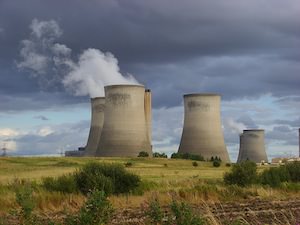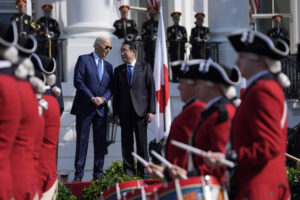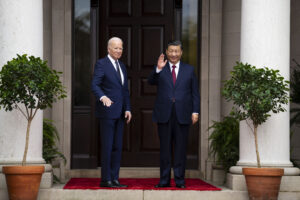China May Own U.K.’s Nuclear Stations
Electricity prices in the United Kingdom are expected to double as a consequence of the British decision to allow Chinese companies to own 100 percent of new British nuclear power stations.
By Paul Brown, Climate News NetworkThis piece first appeared at Climate News Network.
LONDON — The Chinese are to help finance and build a new generation of nuclear power stations in the United Kingdom, helping out the French giant EDF which can no longer afford the £14 billion cost of the first station on its own.
The agreement, announced in China by George Osborne, the British Chancellor of the Exchequer [Finance Minister] at the end of a visit, is bound to be controversial. Initially the Chinese will take only about a 30% interest in this first station, but in future reactor building programmes they will be allowed to own a majority stake.
The British Government deal with EDF, which already operates all the existing civil nuclear stations in the UK, is to heavily subsidise the new construction by guaranteeing the price of electricity for 35 years.
The exact price is yet to be announced but it is expected to be double the existing price of electricity and is sure to spark an inquiry by the European Union, which bans subsidies because they interfere with competition.
Many will see the decision to build two European Pressurized Reactors at Hinkley Point in Somerset as extraordinary in view of the appalling cost overruns and delays of two similar ventures in Finland and France.
The same design of plant being built in Finland, Olkiluoto 3, is seven years late and billions over budget. Construction began in 2005 and the station was due to produce electricity in 2009. The latest estimate is that it will be on line in 2016.
EDF is building a second reactor at Flamanville in France. Work began in 2007, and the reactor was due to be completed in 2012 at a cost of 3 bn euros. Currently the completion date has slipped to 2016, and the cost has almost tripled to 8.5 bn euros.
Mr Osborne claimed the deal was good for investment in Britain and for jobs, and asserted that it would mean lower long-term energy costs for consumers.
Despite his optimism EDF has already told British companies that they are unlikely to get many contracts. This is because it is 20 years since any British companies were involved in building nuclear power stations and they no longer have the expertise to do so. Most of the jobs are likely to go to French and Chinese companies.
Robert Peston, the BBC’s business editor, summed up some reaction in Britain: “When you think about the history of nuclear power, it may be shocking to some that businesses and investors from Britain – whose scientists and engineers were pioneers in this technology in the early days – will not own the new generation of nuclear power plants, and they may instead belong to China’s nuclear power giants as well as to the French.
“The Government is refusing to finance these hugely pricey projects directly – although it will allow the owners of any new nuclear generators to charge well above the current market price for any power they produce in years and decades to come, so that the billions in development and construction costs can be recouped.”
The announcement comes at a time when some older power stations in Britain are being closed because they are producing too much carbon dioxide and have not been modernised. The Government has been warned that Britain is in danger of power cuts in the next five years if there are cold winters.
However, the proposed nuclear stations will make no difference to this situation because they are likely to take 10 years to come on line if the current pattern of delays and cost overruns is repeated.
Your support matters…Independent journalism is under threat and overshadowed by heavily funded mainstream media.
You can help level the playing field. Become a member.
Your tax-deductible contribution keeps us digging beneath the headlines to give you thought-provoking, investigative reporting and analysis that unearths what's really happening- without compromise.
Give today to support our courageous, independent journalists.









You need to be a supporter to comment.
There are currently no responses to this article.
Be the first to respond.